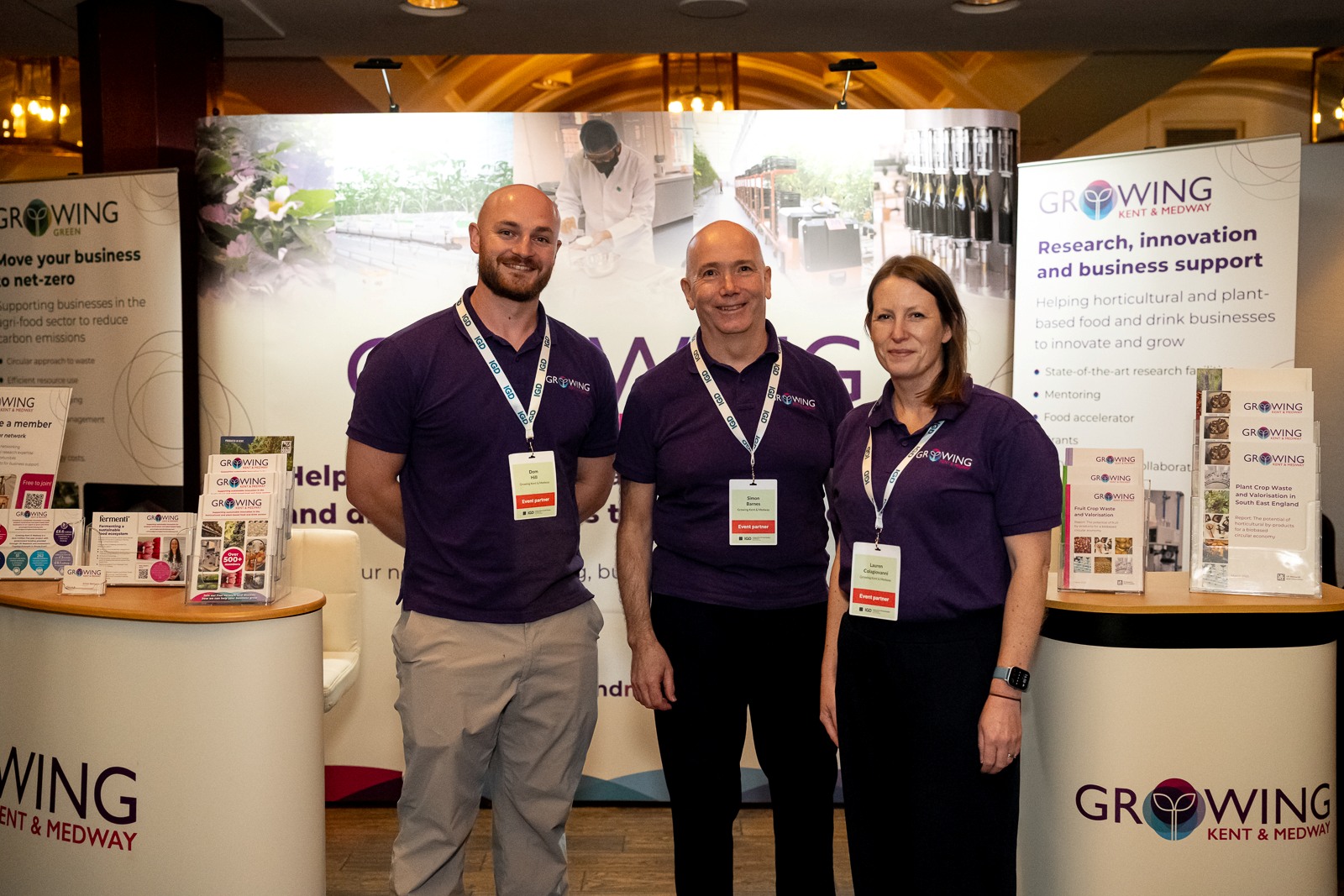Is a thriving food system the key to protecting the NHS?

How a regional strategic approach to food systems could tackle health inequalities in the UK.
Simon Barnes, Director for Growing Kent & Medway, reflects on the IGD ‘Future of UK Food Systems’ Conference, which took place on 1st October 2025 in London.
The direct correlation between the health of our food system and the health of our nation was made clear at IGD’s conference in London last week.
Representatives from retail, manufacturing, policy, and food service came together to discuss how to grow and shape a successful food system in the UK. Throughout the many thought-provoking presentations and panel sessions, the need for the UK government to prioritise investment in our food system and create long-term strategic policy frameworks was often cited.
Speakers questioned the omission of food from the recently published Industrial Strategy. Arguing not only that food and drink should be a priority for government due to its size and value to the UK economy - it is the largest private sector employer in the country, the largest manufacturing sector, and the UK grocery market is expected to grow to £297bn by 2030. But a healthy food system is also critical to the survival of both the NHS and for our national security.
Food for health
Prof Chris Whitty, Chief Medical Officer for England, made a clear case for the food industry to ‘lean in’ to tackle obesity – one of the leading causes of poor health outcomes and costs to the NHS. He reasoned this could be done collaboratively, as we saw in the 1970s with the automotive industry helping to reduce toxic car emissions. Or through government regulation and intervention, as we’ve seen with the restrictions placed on the tobacco industry.
And while much focus has been given to high sugar, high salt (HFSS) legislation, Prof Whitty argued policymakers and industry should give more weight to increasing the amount of fruit and vegetables (by 30%), and fibre (by 50%) in our diet.
The geographical inequalities of poor health outcomes were also stressed. And the conference reinforced our belief that local investment and a tailored strategy to find innovative solutions and address those specific regional challenges and opportunities are key to tackling food insecurity and obesity.
Homegrown solution
The urgent need and opportunity to drive growth in the horticulture sector was referenced throughout the day. And a recent report published by IGD Economics, argues that by unlocking barriers to innovation and growing consumer demand, increasing UK horticulture production would help meet the NHS’s target of the public consuming their ‘five-a-day.’
Growing more of our own produce here in the UK, and not relying on fresh produce imports, would also bolster our national food security and drive economic growth. We have the resources to be more self-sufficient with our food production, but we heard repeated calls from speakers on the need to remove barriers to productivity, for example, improving the planning processes to build new glasshouses or reservoirs.
"Fruit and vegetables are essential for health from a demand perspective, yet the proportion of people meeting the five-a-day fruit and vegetable recommendation remains below target. Consumption has fallen from 33% in 2016 to 17% in 2023, while only 4% of people achieve the recommended fibre intake." IGD Report - Viewpoint: Driving growth through a thriving food system, September 2025
Minette Batters, Defra Farming Profitability Review Lead, suggested we set a target to remove the import of soy into the UK in the next 10 years by growing more of our own alternative protein crops here as part of the arable rotation. Trials at Niab are already exploring suitable varieties and growing practices to increase the amount of land used for crops like chickpeas and field beans. And we are funding researchers at the University of Kent and the University of Greenwich who are innovating with alternative protein production and processing. If the government adopted this target as policy, perhaps this work could be accelerated through increased funding and collaboration.
A healthy future
As we know, there is never one simple solution to some of the hardest problems. But a clear and consistent food strategy, and great collaboration between industry, policymakers, academics and social enterprise, could transform our food system.
The conference ended with a call by Jack Bobo, Rothman Family Institute for Food Studies, UCLA, to tell more positive stories about the successes that have already been achieved in food and health. And we have many positive stories to tell at Growing Kent & Medway. We have brought over 50 new healthy and nutritious food products to market, funded over 100 projects to make our food more sustainable, and invested £8.6m in our region’s food research capability. Our network is well-placed to continue our work to increase productivity in horticulture, build resilience in our supply chains, and give people access to nutritious and affordable food.
Please get in touch if you’d like to discuss our plans to continue to build a thriving food system here in Kent and Medway.
- Download the IGD Economics Report: Driving Growth Through a Thriving Food System
Research
06.10.2025
